In the Research Café this week, the UTS research community heard from Distinguished Professor Peter Ralph and Nick Hazell, the founders of Algenie, A/Prof Amy Freeman-Sanderson, a senior lecturer in Speech Pathology, Visualisation Developer Thomas Ricciardiello from Data Arena and Engagement Manager Kumar Jain from UTS International.
Innovative research driving change
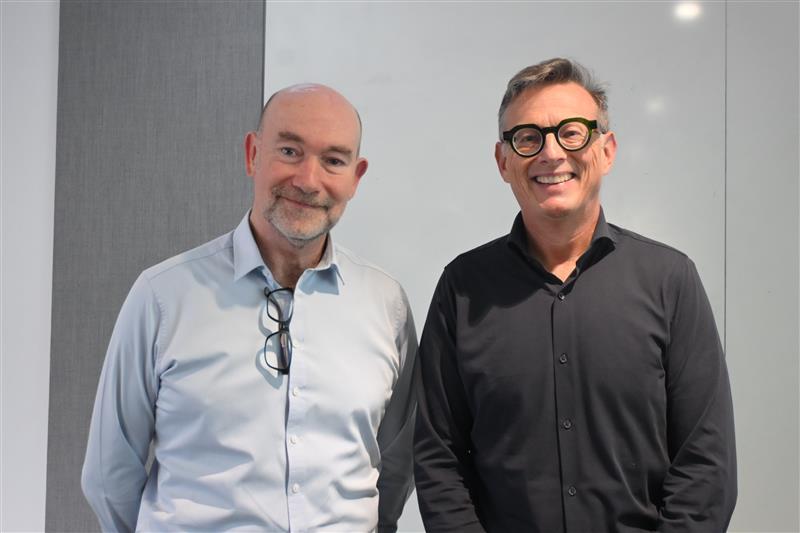
Caption
Distinguished Professor Peter Ralph and Nick Hazell at Research Cafe
Peter kicked off the Cafe discussion by sharing the origins of Algenie. This startup spun out of the C3 Climate Change Cluster has a mission to create technology that brings the cost of algal biotech down towards the cost of fossil fuel-derived equivalents.
“I attended a 2017 biotech conference in the Czech Republic looking at how to make algal biomass and was intrigued by a facility that looked like a shopping centre carpark with a thin layer of algae floating across the roof. I wondered whether this could be made smaller to fit into a shipping container,” Peter said.
We can use this technology to produce bioplastics, biofuels and all other biopolymers at a comparable cost to the fossil fuel industrial system.
“We spent a couple of years working out how to do this and ended up with the Green Genie, a modular "plug and play" unit that can fit into a standard six-metre shipping container for direct air carbon capture, wastewater treatment and algae biomass production.”
Peter’s next step was to work out how to scale the product and raise some cash. His team had already worked with Nick and his plant-based meat company v2food. Nick had already raised about $180 million and had worked with UTS to develop a few patents, one of which was a pigment derived from algae.
“You need pigment to change the colour of plant-based meat when you cook it, otherwise you don't know when to stop cooking.” Nick explained.
“But this solution was too expensive. So we started working with LGEM and with Peter at UTS to figure out how to reduce the cost of growing algae.”
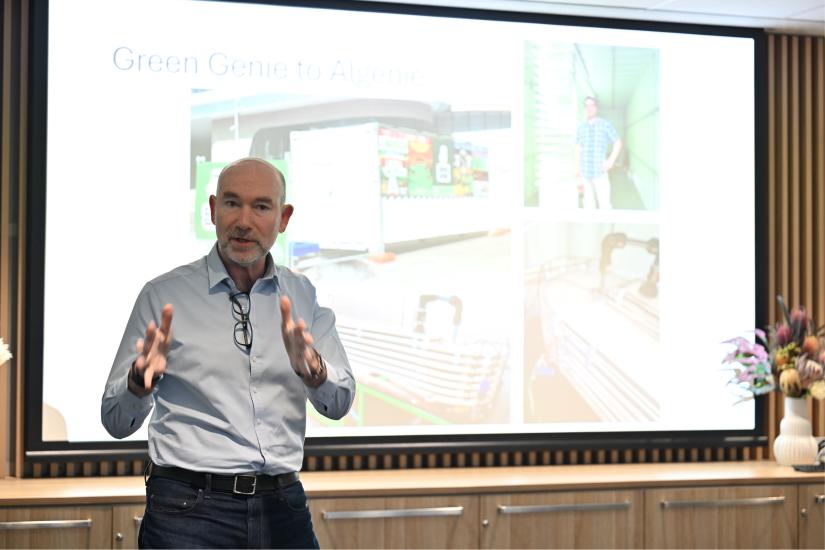
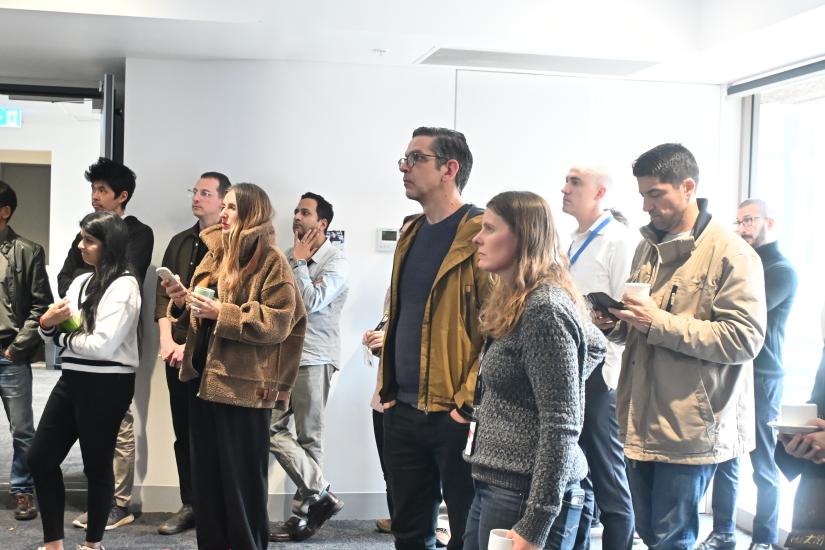
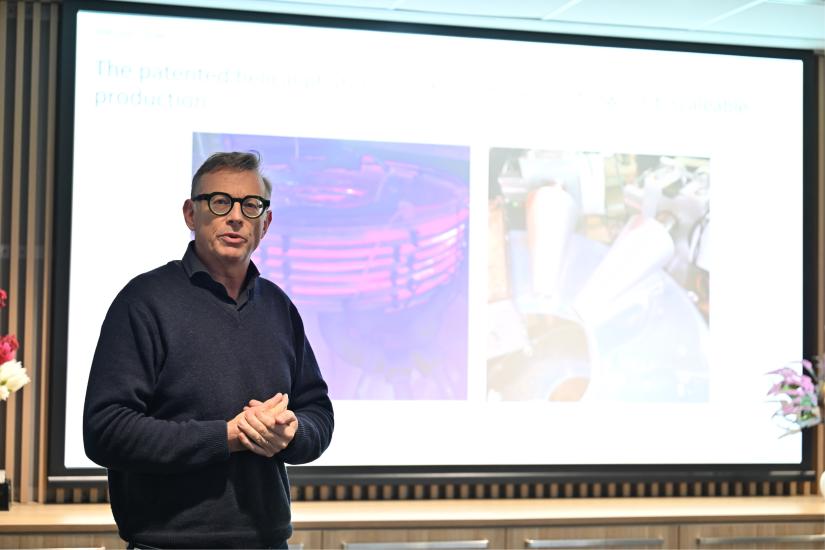
“We’ve now invented a new way of producing algae by extruding a helix. We have two patents. One is the helix itself and the other is the extrusion process to make a helix,” Nick said.
The team’s approach will reduce the capital cost of photobioreactors, and radically lower operating cost by improving productivity.
With UTS leading as a shareholder, Nick said the new technology has the potential to spur a new biotech industry.
“We can use this technology to produce bioplastics, biofuels and all other biopolymers at a comparable cost to the fossil fuel industrial system,” he said.
Supporting patients with swallowing and communication difficulties
Next up we heard from A/Prof Amy Freeman-Sanderson, a senior lecturer in Speech Pathology whose research looks at how we can improve the experience and outcomes for people during and after intensive care.
In introducing the Priority Setting Partnership project that is part of an NHMRC Investigator Grant focussed on communication and swallowing difficulty in critical illness, Amy said people needing intensive care are left with sometimes lifelong disabilities.
We want to know from all community members who have questions they would like research to answer about having a communication or swallowing difficulty during or after critical illness.
“Part of those disabilities are swallowing and communication. I’m developing a consumer driven research priority setting list. Our process brings clinicians and patients together to try and find out what are the questions that haven't been answered already by research evidence,“ she said.
“We want to know from all community members who have questions they would like research to answer about having a communication or swallowing difficulty during or after critical illness.”
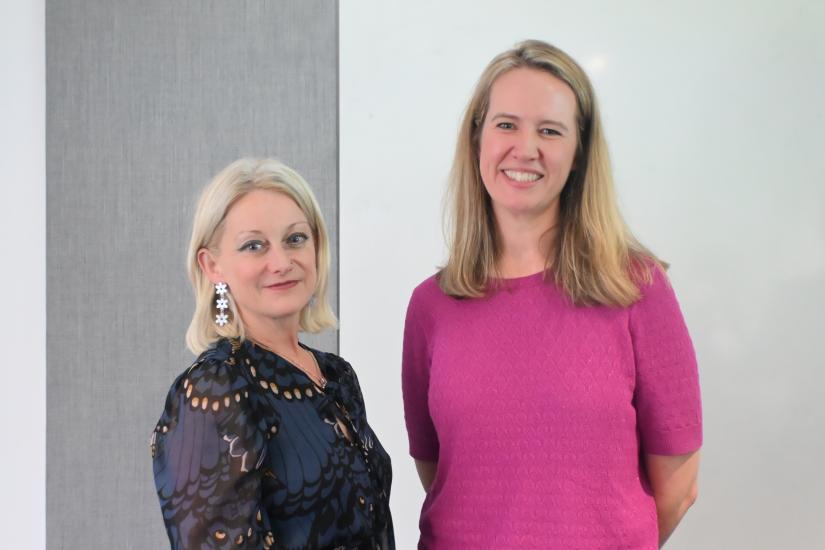
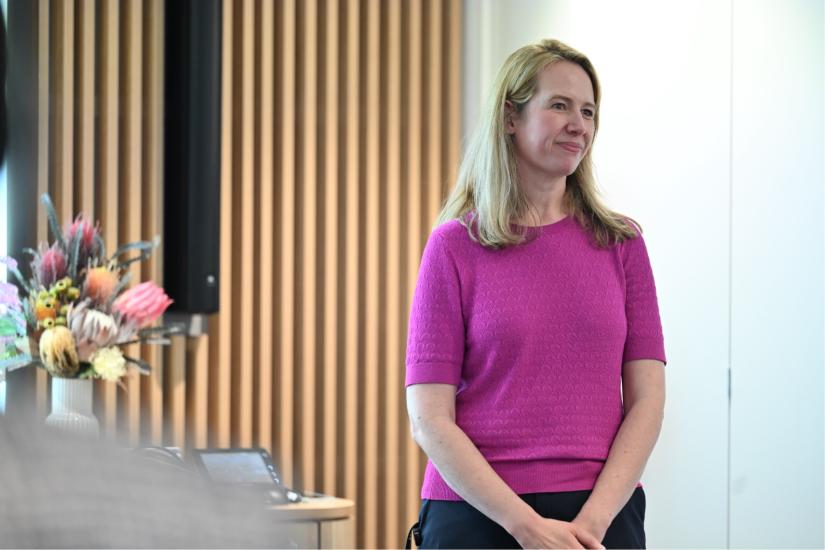
Amy said the team will follow the James Lind Alliance methods to consult and develop the top 10 research evidence uncertainties. This list will be shared with funding bodies and government to guide research priorities.
Learn more by registering your contact details.
Data Arena turns ten
In recognition of Data Arena's 10th anniversary, Visualisation Developer Thomas Ricciardiello discussed how to engage with this unique facility that helps researchers visualise and communicate their data.
With its massive, 360-degree 32,000px resolution display and significant computing power, the Data Arena enables users to visualise incredibly complex projects, turning numbers into pictures.
Data Arena enables users to visualise incredibly complex projects,
turning numbers into pictures
“We've worked on over 500 projects over the past 10 years, across areas of architecture, engineering, digital fashion, science, transport and animation,” Thomas said.
With sophisticated technological capabilities including spatial audio and motion capture (full body and object tracking), the facility can be used to power virtual production film sets, record real-time animation data and capture your attention with immersive storytelling.
Thomas reminded attendees that the Data Arena is a facility that is freely available to UTS researchers, staff and students.
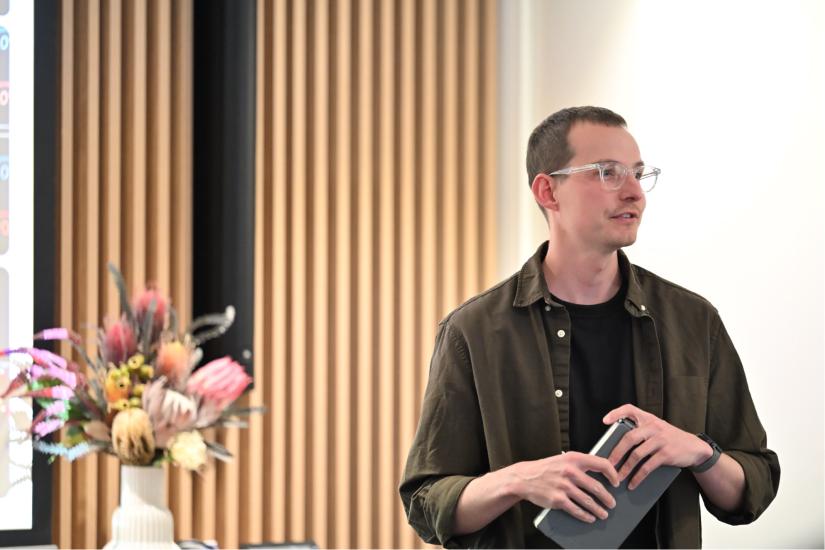
“We're here to support the UTS community. We do not charge at the door,” he added.
“Instead, we run inductions and train you up in how to turn everything on, get started and use the facility yourself. This means you can make a booking, come in on your own and actually use the facility to create incredible projects.”
Thomas encouraged attendees to attend one of the weekly Data Arena Open House sessions that run every Thursday from 12–1PM. Learn more about Data Arena and make a booking.
Apply for the World Universities Network Research Development Fund
The Café concluded with a brief update from Kumar Jain, Engagement Manager, Global Partnerships, who outlined current opportunities available through the World Universities Network.
“The Research Development Fund is currently open for UTS academics with up to £10,000 available, or around $21,000. You can apply as a principal investigator leading a project, or by becoming a co-investigator.”
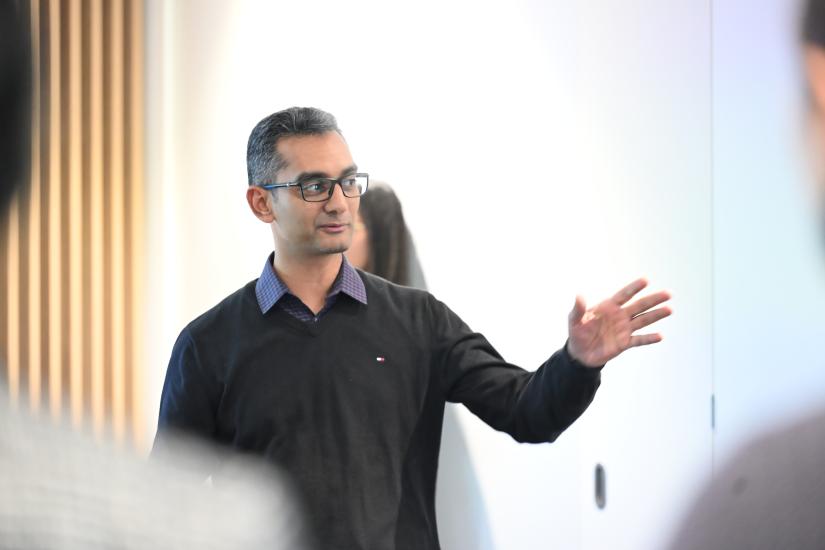
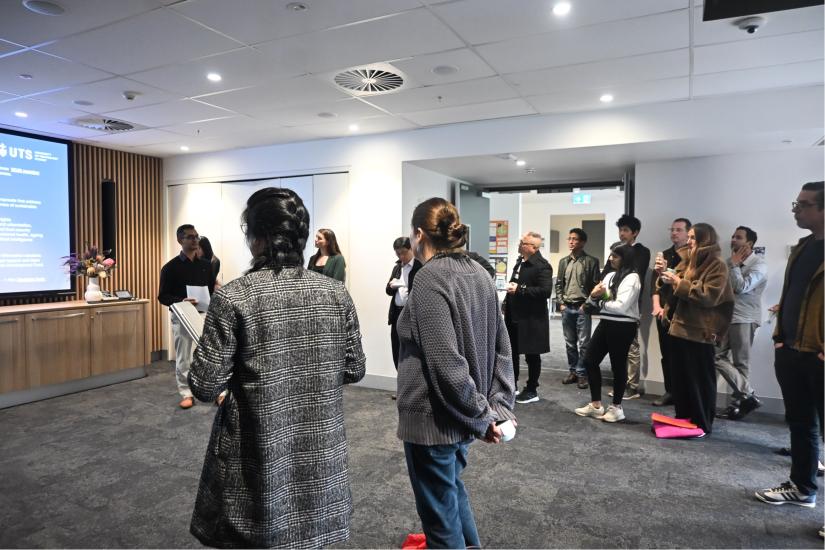
With the 2025 focus areas on social justice and human rights, sustainable world, mental health, maternal health and ethical applications of artificial intelligence, Kumar urged potential applicants to attend the information session at 12 pm on Monday 11 August 2025. Register now.
For more information, visit the UTS WUN webpage. You can also contact the UTS Global Partnerships team by email.
All slides from past presentations are available here, where you can learn more about the fortnightly Research Café and how to receive the standing calendar invitation.